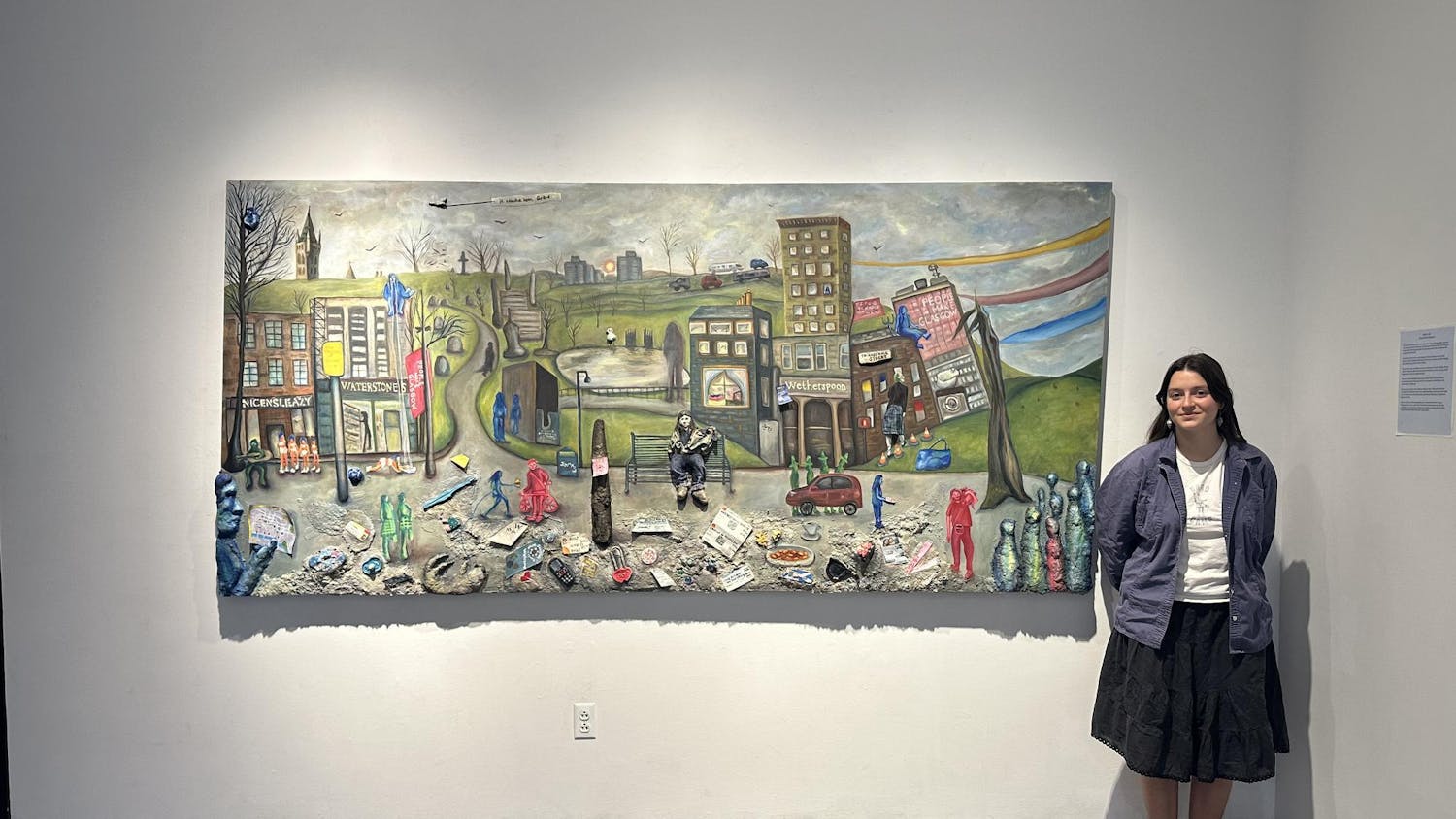It is easy to forget there are only two actors in the cast of "Yellowman," Trinity Repertory's current production. The small cast seems anything but sparse in Dael Orlandersmith's play, and the plot is anything but two-dimensional.
"Yellowman," set predominantly in South Carolina, traces the relationship between Eugene (Joe Wilson Jr.) and Alma (Rachel Christopher) through several decades. The relationship struggles beneath the weight of racial pressures and societal expectations.
Eugene is a light-skinned black man, referred to as a "yellowman." He is expected not to mingle with the darker-skinned Alma. When they befriend one another as children in the 1960s, they are heedless of their families' suspicions and anger towards the other's status.
Eugene and Alma trade off recounting the profound experiences in their lives — creating a play largely comprised of monologues.
Each character tells of their own family troubles, acting out the roles of various family members. Both actors pull this off spectacularly, impersonating various men and women with ease.
Through Eugene, Wilson acts out the roles of his character's father, mother and grandfather, each with startling specificity and individuality.
The depiction of Eugene's father, a dark-skinned black man who has risen into light-skinned black society through hard work, is at once tragic and hauntingly realistic. Eugene portrays his father as a heavy drinker with little pride in his light-skinned son. The audience sympathizes with the fear that Eugene harbors towards the man.
Alma's most interesting feature is the extreme transformation she undergoes, from a poor South Carolina farm hand to a worldly New York urbanite. Christopher presents this transformation largely through varying her accent — for which she has a true talent.
"I thought the acting was very powerful," said theatergoer Bob D'Uva. "Rachel Christopher was amazing."
By trading off monologues and occasionally speaking with one another directly, the two characters elaborate on the dangerous power of family and race.
"We are made in the voice of who tells the story most and in the shape of those who we are told love and hate us," wrote Director Laurie Carlos in the program notes.
The lighting is used to great effect. The opening scene finds the stage bathed in a yellow light which grows gradually stronger, like South Carolina heat slowly stifling the theater. When the plot shifts to New York City, the light's color is rapidly shifting, accompanied by a monologue in which Alma describes the music of different cultures she encounters for the first time.
Music and sound effects are playing quietly in the background nearly constantly — a potentially annoying effect — though the acting and plot are usually strong enough to overpower the background sound.
Though the March 2 performance was not entirely flawless — several lines were mingled or spoken at the wrong time — the quality of the acting was not diminished, and was extremely strong and heartfelt.
"Yellowman" is surely a challenge for the actors, but Wilson and Christopher pull it off with ease, finesse and, at times, humor. The malleability with which they treat their voices, facial expressions and posture as they assume the multiple roles is memorable and something to be praised.
"Yellowman" will be running at Trinity Repertory Theater through April 3.
4 out of 5 stars
Each actor demonstrates a true capacity for assuming multiple personalities, creating a plot that keeps the audience guessing.




